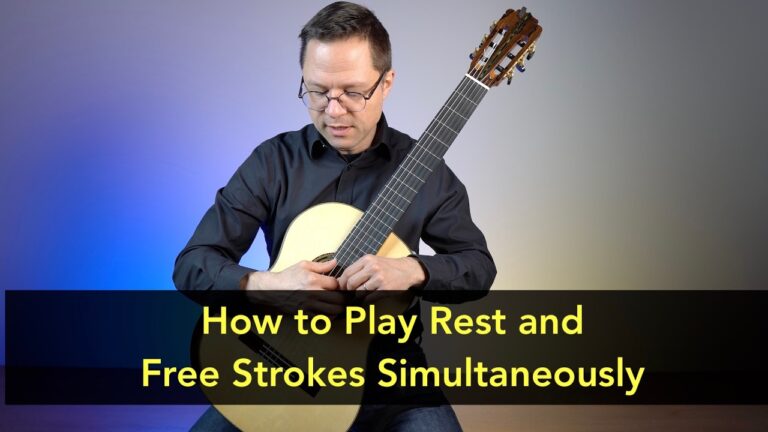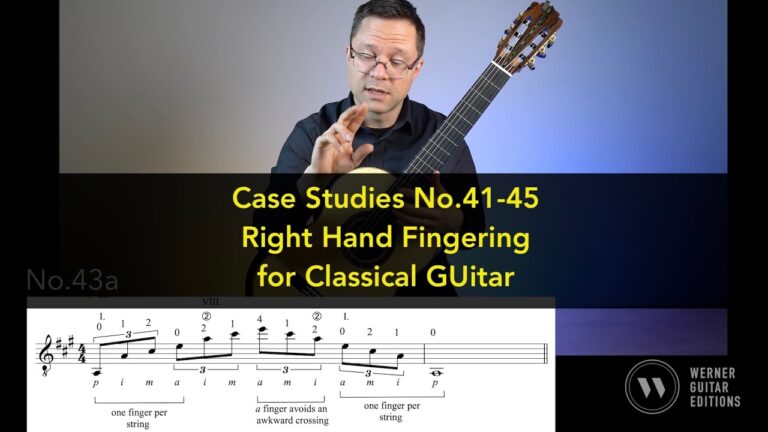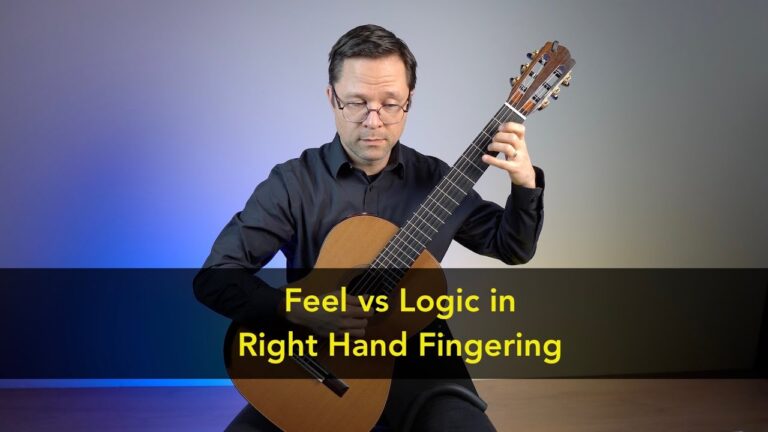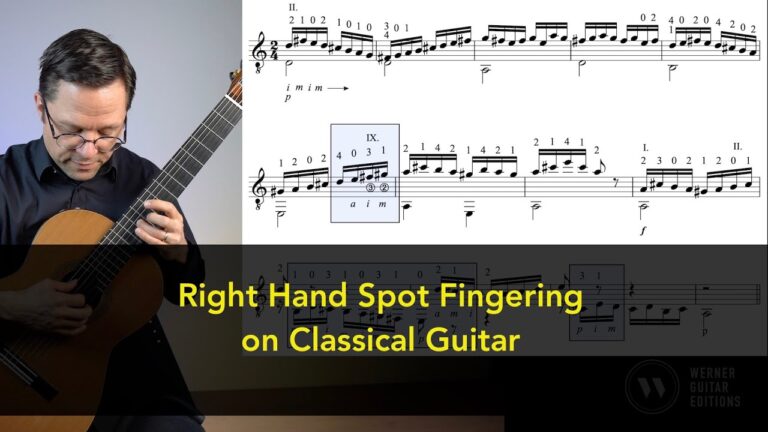A lesson on how to play rolled chords on classical guitar and how they affect expression, phrasing, and more in our music. The example piece is Andante (from Schule für die Guitarre) by Johann Kaspar Mertz (1806-1856) from my Easy Classical Guitar Pieces Vol.1.
Tips for Rolled Chords on Classical Guitar
- Be able to play without rolled chords. If you can’t play without rolling chords you are likely letting your hand decide the articulation of the repertoire instead of it being a conscious choice. So, first play without rolled chords and then add them if you feel they add something appropriate to the piece.
- They should be a specific expressive effect that you choose to use. Think of them more as ornaments.
- Reasons to roll chords could range from: historical awareness, personal preference as an expressive effect, a way to disrupt the vertical chord or rhythmic pulse, a possible way of highlighting a note.
- Rolled chords can disrupt the musical flow of the phrase so be careful.
- Too many rolled chords can create a sea-sick feeling of over-expression. However, when placed well they can have a beautiful effect of the texture.
- I tend to add them near the beginning or ends of phrases so as to not disrupt the momentum of the middle of the phrase. I especially don’t want to disrupt the phrase.
The Technique of Rolled Chords
- Being able to play rolled chords are often the result of relaxation and finger independence.
- Practice arpeggios and practice scales with all combos of alternation: i-m, m-a, i-a, p-i and all the reserve combos.
- It’s one gesture rather than an arpeggio so although arpeggio practice will help, it is more of a technique and psychological gesture.
- Try to keep the movement in the fingers but at first, as an experiment, you can try some pulling away of the hand like a harp player might.
- Give it time, in the end you do not need this technique to play beautifully and I guarantee you’ll get it later in your development.
Feel free to leave a comment below if you have any questions.





‘A Seasick Feeling’…AND your expression of it. Really cracked me up. So true. Thanks Bradford!